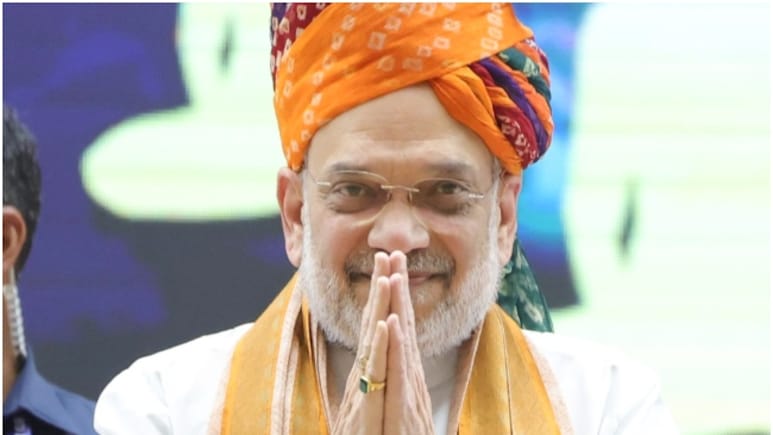
- Amit Shah became India’s longest-serving Union Home Minister with 2,258 days in office
- He surpassed Lal Krishna Advani’s previous record of 2,256 days as Home Minister
- Mr Shah’s tenure began on May 30, 2019 and briefly paused on June 9, 2024 before resuming
Amit Shah has become the longest-serving Union Minister of Home Affairs of India on Tuesday. With 2,258 days in office since assuming the role on May 30, 2019, Mr Shah has now surpassed the previous record held by senior BJP leader Lal Krishna Advani.
Mr Shah's tenure has also overtaken that of Congress stalwart Govind Ballabh Pant, cementing his position as a key pillar in the current National Democratic Alliance (NDA) government.
Coincidentally, Mr Shah achieved this milestone on August 5, the date he announced the abrogation of Article 370 in Parliament in 2019, ending the special status of Jammu and Kashmir.
Before Amit Shah, the leaders who served the longest tenures as Home Minister include Congress leader Govind Ballabh Pant and Bharatiya Janata Party (BJP) leader Lal Krishna Advani.
Previously, BJP stalwart Lal Krishna Advani had held the position for 2,256 days (from March 19, 1998, to May 22, 2004). In comparison, Amit Shah has been serving as Home Minister since May 30, 2019, and by August 4, 2025, he will have completed 2,258 days in office.
Govind Ballabh Pant served from January 10, 1955, to March 7, 1961, a total of 6 years and 56 days.
Mr Shah became the country's Home Minister on May 30 2019, and remained in the post till June 9 2024. He again became Home Minister on June 10 2024, and is serving. Apart from the Home Ministry, he is also the country's first Cooperation Minister.
Apart from this, Amit Shah had also served as Gujarat Home Minister and held the position of BJP National President.
The tenure of Amit Shah as Union Home Minister, under the leadership of Prime Minister Narendra Modi, has been marked by several transformative developments in India's internal security landscape. The historic abrogation of Article 370 and the withdrawal of Jammu and Kashmir's special status stand out as landmark decisions. The region has since witnessed a dramatic improvement in law and order, with stone pelting incidents virtually eliminated. Across the country, there has been a sharp decline in areas affected by Left-Wing Extremism, Naxalism, and Maoist activities.
The peaceful progress in the construction of the Ram Janmabhoomi temple, the introduction of new criminal justice laws, and the successful enactment and rollout of the Citizenship Amendment Act (CAA) further highlight this period. Multiple peace agreements in the North East have brought resolution to several long-standing insurgencies, making this a period of significant consolidation in the country's internal security framework.
(Except for the headline, this story has not been edited by NDTV staff and is published from a syndicated feed.)
Track Latest News Live on NDTV.com and get news updates from India and around the world

